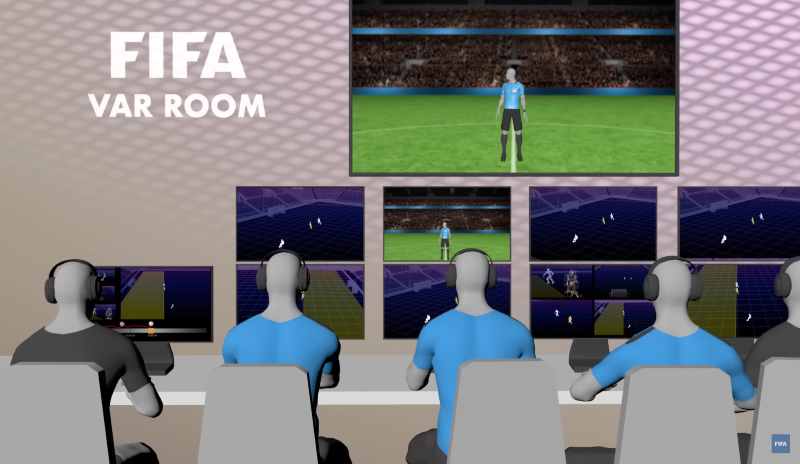
In a bid to offer better support and make more accurate and more reproducible offside decisions, FIFA has announced bringing in semi-automated offside technology.
This follows the successful use of VAR technology during the 2018 FIFA World Cup in Russia. FIFA President Gianni Infantino stated that FIFA would strive to harness the full potential of technology in football and further improve VAR, and the organization has spent the last few years working to improve the VAR system, including the use of semi-automated offside technology in collaboration with various partners such as adidas.
“At the FIFA World Cup in 2018, FIFA took the brave step of using VAR technology on the world’s biggest stage, and it has proven to be an undisputable success,” FIFA President Gianni Infantino said. “Semi-automated offside technology is an evolution of VAR systems that have been implemented across the world.”
The new technology employs 12 dedicated tracking cameras mounted beneath the stadium’s roof to track the ball and up to 29 data points of each individual player 50 times per second, calculating their precise position on the field. The 29 data points collected cover all limbs and extremities that are relevant for making offside calls.
Even though the official FIFA ball Al Rihla as an inertial measurement unit (IMU) sensor is placed inside the ball, adidas will provide a more critical element for detecting tight offside incidents. This sensor, located in the center of the ball, sends ball data to the video operation room 500 times per second, allowing for very precise detection of the kick point.
The semi-automated and connected ball technology has already been tested and used successfully at numerous test events and live FIFA tournaments, including the FIFA Arab Cup 2021™ and the FIFA Club World Cup 2021™.
The new technology, which employs artificial intelligence and combines limb and ball tracking data, alerts video match officials inside the video operation room whenever the ball is received by an attacker who was in an offside position at the time the ball was played by a teammate.
“VAR has already had a very positive impact on football, and we can see that the number of major mistakes has already been dramatically reduced,” said Pierluigi Collina, Chairman of the FIFA Referees Committee. We expect that semi-automated offside technology can take us a step further.”
“The testing has been a major success,” he added, “We are very confident that, in Qatar, we will have a very valuable support tool to help referees and assistant referees make the best and most correct decision on the field of play.”